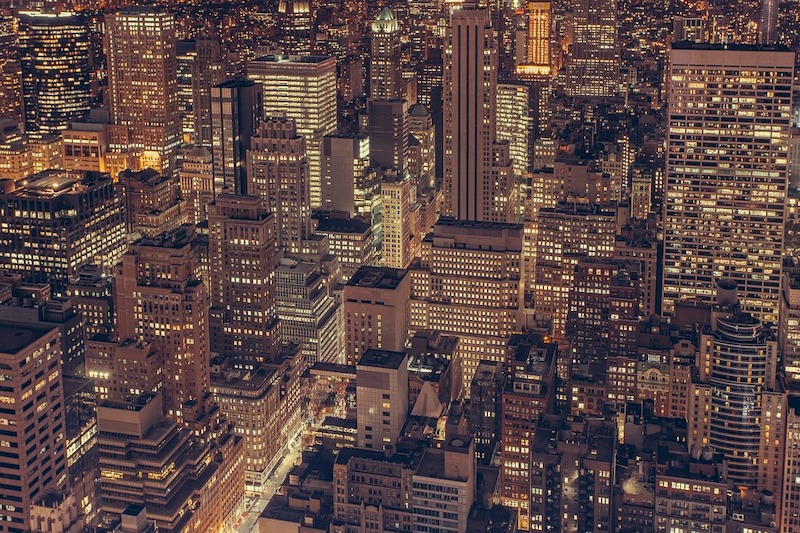Cities, where the urban heat island effect amplifies the impact of global climate change, are going to heat up in the coming decades. If greenhouse gas emissions continue on their current path, the average number of days that feel hotter than 100 degrees in the U.S. will more than double by 2050, according to a recent study.
Many cities around the world are taking action to keep cooler as temperatures rise. Some of the most common strategies are cool streets, cool roofs, and a broader urban tree canopy.
For example, Melbourne is mapping street trees and embarking on massive tree-planting efforts. The Australian city plans to double its canopy cover by 2040.
New York City has coated more than 10 million sf of rooftops with a white, reflective coating over the last decade. In Dallas, an initiative mapped areas that were hottest because of a lack of trees, and then planted trees in these areas along key pedestrian routes such as the paths that children take to school.
Tokyo has coated miles of streets with reflective pavements. Other cities have tested pavement that allows grass to grow through it.
Related Stories
| Nov 23, 2011
USGBC launches app lab for LEED certification process
The U.S. Green Building Council has released the App Lab, a searchable catalog of third-party apps that are integrated with LEED data.
| Nov 23, 2011
Document gives advice on stormwater runoff management
The report, “Rooftops to Rivers II,” provides tips on how cities can use smart infrastructure and green building design to minimize pollution from stormwater runoff and other wastewaters.
| Nov 23, 2011
Zoning changes proposed to make New York City buildings greener
New York City will introduce new zoning proposals next month that would make it easier for building owners to add features that will make their properties more sustainable.
| Nov 18, 2011
AGC offers webinar on Davis-Bacon compliance
Webinar to be held in two sessions, Dec. 7 and 8 from 2:00-3:30 p.m. EST.
| Nov 18, 2011
New green construction code may help push LEED standards higher
The International Green Construction Code (IgCC) is expected to set a floor for building standards and may create the opportunity for LEED certifications to push toward higher ceilings.
| Nov 18, 2011
New OSHA fall safety rule could save contractors money on insurance premiums
The new Occupational Safety and Health Administration rule requiring employers operating in the residential construction industry to use the same methods of fall protection that historically have been used in the commercial construction industry could save them money.
| Nov 18, 2011
Some believe new Austin building code will help mom and pop shops
Austin, Texas has proposed building codes that require wider sidewalks and call for buildings to be closer to sidewalks along a 3.5-mile stretch of highway.
| Nov 11, 2011
AIA: Engineered Brick + Masonry for Commercial Buildings
Earn 1.0 AIA/CES learning units by studying this article and successfully completing the online exam.
| Nov 10, 2011
WaterSense standard for weather-based irrigation controllers unveiled
The U.S. Environmental Protection Agency’s (EPA) WaterSense program has released a final specification for weather-based irrigation controllers—the first outdoor product category eligible to earn the WaterSense label.
| Nov 10, 2011
Advocate seeks noise reduction measures in California building codes
A former chief building inspector for San Francisco wants to enact building codes that would limit noise levels in restaurants and other spaces open to the public.















